Got A Mistress? Don't Buy That EV!
Automotive News [sub] hasn’t received the memo that EVs need good news, badly. Instead, AN hammers the last nail into the electric vehicle’s coffin. If range anxiety, the lack of 220V outlets at your curbside parking spot, and high prices aren’t enough to keep you away from an electric car, how about “an Orwellian future where faceless international corporations track your every move. Drop by the bar after work, call in sick to go to the beach, visit your mistress’ house. The all-seeing eye of Big Brother knows where you’ve been.”
That’s what will happen when you drive an EV, says Automotive News [EN]. Your green friend will snitch on you. 24/7.
"Look, Ma: No Hands." For 8000 Miles, From Italy To China
Four driverless, autonomous vans finished a trek most drivers would never think of driving: From Italy through Eastern Europe, Russia, Kazakhstan and the Gobi Desert, all the way to Shanghai, China. They arrived there last Thursday, just in time for the Expo that closed last weekend. It was a long 8000 mile way, and they never got lost.
The Sub-Sub-Sub-Sub-Compact (It's A Ricer)
Researchers at Rice University have developed and successfully built the world’s smallest car. It has a chassis, axles and a pivoting suspension. The whole car is no more than 4 nanometers across. No idea how small that is? It’s slightly wider than a strand of DNA. A human hair is about 80,000 nanometers thick. You can build a 20,000 lane highway for these cars on a strand of hair.
GM Shrugs Off LaHood Criticism, Moves Forward With In-Car Facebook
A week and a half ago, when asked about automaker plans to bring in-car access to social networking sites like Twitter and Facebook, Secretary of Transportation Ray LaHood told Bloomberg
I’m absolutely opposed to all of that.That would be the biggest distraction of all. All of that is well beyond the idea that you’re really trying to avoid distracted driving.
Regardless of LaHood’s ongoing campaign to curb distracted driving, the government-owned General Motors is pushing ahead with plans to integrate voice-activated Facebook and Twitter updates into its Onstar system. Onstar CEO Chris Preuss takes on LaHood’s perspective on in-car Facebook updates in the Detroit News, arguing
Not only is it safe — all things relative in the vehicle — it’s actually a benign activityThe End Of Driving Is At Hand(s Free): Google Cars Plying The Highways Autonomously
No, that’s not a Google Street View Prius being piloted down the 101. The roof-top device is Lidar, part of the sensors that allow it to drive by itself. Perhaps out of a desire to solve a problem they helped create (texting, mobile web use, etc.), Google has come ever closer to perfecting autonomous cars. NY Times reports that Google has a fleet of seven cars plying the highways and streets of California, with paid “sitters” behind the wheel to confirm that everything is ok, as well as to conform with CA law.The cars have driven up to 1,000 miles without any human intervention, even down twisting Lombard Street, and have racked up 140k total driver-less miles. The only incident so far was someone rear ending one of the Priuses at a red light. All we need now is for judges to mandate them for lousy drivers.
C&D Teams Up With Chrysler To Sell "Distraction Mitigation" App
OK, so the basic functionality of the Car & Driver/Chrysler “Txt U L8r” app is fine: receive a text message while you’re driving, and it will read it aloud and automatically reply that you are driving and cannot respond immediately. But the industry’s fundamental ambivalence towards distracted driving quickly rears its head in the form of a “paid upgrade” that allows voice-activated replies by the driver: distracted driving is not a problem to be solved, but a money-making opportunity to be exploited. As a result, the message that C&D and Chrysler send with this new app is “Texting while driving is bad, bad, bad… unless you shell out for our perfectly safe app.” Which, not to put too fine a point on it, is bullshit.
BMW Will Make You Pay
It used to be that you paid for your car keys. If BMW gets its w ay, you will pay with your car keys. Automobilwoche [sub] reports that BMW ist developing the “car key of the future.” Oddly enough, it won’t unlock revolutionary new features of the car. It will replace the credit card, a train ticket and a room key at the hotel. Say what?
In-Car TV Going Nowhere
Given the rush to load up cars with the latest technological gadgets, you’d think that in-car television would have taken off by now. But Chrysler, the pioneer of in-car live TV, has sold only 850 units of its FLO TV system since it began offering the $629 (plus installation) MOPAR accessory last year, according to the Detroit News. And now Qualcomm is winding down its FLO TV business (likely due to low sales, reports the LAT), leaving Chrysler with only the Sirius TV subscription service to offer consumers who want live TV in their Grand Caravan. Chrysler is
still developing a plan to take care of the customers with FLO TV as it learns more details of how the television service provider plans to stop offering its direct-to-consumer programming,but it seems that the technology simply isn’t striking a chord with consumers. Which leaves the question: why? High price? Poor marketing? Or do consumers really draw a line between in-car DVD players (must-have) and live in-car TV (no thanks)?Social Networking For Cars: As Creepy As It Sounds
BUMP.com: Who BUMPed Me? from BUMP on Vimeo.
Cars may be battling with communication technology for the hearts and minds of the youth, but at least we’ve got a handle on the downsides of our internal-combustion (or, increasingly, not) friends. Cost, pollution, risk and overall coolness deficits can, given a responsive industry, be battled. On the other hand, we’re only just learning about the endless creepiness that comes from limitless connectivity (stop me when I start sounding like someone who just enjoyed a week away from the internet). Take, for example, the latest attempt to fuse social media with cars: Bump.
Volvo To Make Cars Out Of Batteries
Volvo, now in the hands of China’s Geely, may revolutionize the way electric and hybrid cars are built. Currently, you have to shove a big honking battery into an electric car, and a simple honking battery into a hybrid. This adds weight, and obesity is a killer when in come to mileage. Volvo, working with the Imperial College in London has a wild idea: Why not dispense with the big honking battery and use the whole auto body to store electricity. Say what?
Onstar: Facebook Features Could Be Unsafe
Having told the world that Onstar will allow users to update their Facebook profiles and listen to Facebook news feeds from their cars, bosses at the GM subsidiary reveal that they haven’t actually determined if these features are safe yet. Onstar Marketing boss Sam Mancuso explains the situation to AdAge
Today people are texting while they are driving. It’s not legal and it’s a very bad idea; 47% of people who are texting say that they have done so in their vehicle while driving. To do a normal text message takes 4.6 seconds, and at the speed of 55 miles an hour, someone can travel the length of a football field. We know that people want to use technology, but we are working on using it in ways that they don’t have to be distracted. Our goal is to minimize that distraction to virtually zero.
The litmus test we use is “Keep your eyes on the road, your hands on the wheel and your mind on the drive.” If we find that the texting service or Facebook audio update capability causes people to be distracted we’re not going to do it. We’ll vet those things out internally…We’d be very proud to talk to you, others in the media or family and friends and say we tested it, developed it and it’s not safe.
Does anyone actually believe that this will be the outcome, now that GM and Onstar have begun hyping these features?
The Future Of Car Brands: Scooters
If you exist outside the fast-paced world of the automotive branding community, you might believe that the point of car brands is to sell cars. Needless to say, you’d be wrong. The big buzzword around car brands, particularly the more niche and eco-friendly brands is “mobility.” As in “we must leverage our brand values to provide a broad-based mobility strategy for the cities of the future.” Or, to put it into layman’s terms, “screw cars, we gotta start building scooters.”
Onstar Explores The Line Between Convenience And Distraction
The never-ending tension between the desire to give consumers more choices of in-car gizmos and the need to halt the advance of distracted driving took another confused twist this week, as Onstar announced that it is testing new features that could allow drivers to listen to text messages and update their Facebook status from behind the wheel. According to the DetN, the technology would read incoming text messages or a Facebook news feed to the driver, and could even allow the driver to update their own Facebook status verbally. Needless to say, GM and Onstar are hyping the updates as ways to keep up with Ford’s SYNC on the entertainment front, and because the features are all hands-free, they’re safe… right?
Soon In A Car Near You: Powerless Sensors
More than 150 little sensors are used in a single luxury car. That means a mess of wires, even if those sensors are talking to the car computer via a CAN bus. Those sensors need power. There’s more than a kilometer of cables for sending power to the sensors alone. Imagine what would happen without those wires: The car would be lighter. Cheaper to produce. And the sensors would go dead. Not if Toyota, Panasonic and 20 other Japanese companies get their way.
LAPD Test Finds License Plate Covers, Sprays Ineffective
The Institute of Transportation Engineers Journal published in May the results of an extensive Los Angeles, California Police Department evaluation of the effectiveness of license plate covers and sprays designed to defeat automated ticketing machines. The results showed that the popular countermeasures did not work well under actual field conditions using the red light cameras operated in the city by Nestor Traffic Systems (the firm has since gone bankrupt and American Traffic Solutions now runs the program).
Ford Reveals Your Identity
Does a passport with an RFID chip freak you out? Not if you don’t carry your passport on you. How about RFID-equipped drivers’ licenses? Well, stick the license in a shield and nobody will be the wiser. Never heard of RFID? It’s a chip that needs no power. It sends out a number that identifies you. Think of a barcode on your forehead. How about RFID equipped cars?
Get Off My Butt: Nissan Develops Rear-End-Avoider For The Masses
I’m still shaking when I think back to my first ride in the passenger seat of a brandnew Phaeton. It was piloted by a known reckless high executive of Volkswagen. Near Hannover, we barreled down the Autobahn, with the speedo indicating something above 250 km/h. I didn’t dare to inspect it closer, because I was scared to death. We were in the thickest of fogs. Visibility zero. “Aren’t you worried?” I inquired with a shaking voice. “Nope. We have RADAR.” Actually, it was called Abstandswarnung (distance warning). Now, Nissan will make it available to the common Joe.
2011 Hyundai Elantra (Avante) Caught Parking Itself
Our Korea-based contributor Walter Foreman already suspected that the new Hyundai Avante might be one of the world’s first mass-market compact car with a self-parking feature (similar systems are offered on the Toyota Prius and Euro-market VW Golf), and this video proves that he was dead right. What’s still not clear is whether self-parking is standard on the new Avante (launching August 2 in Korea), or whether it will be offered when it comes stateside as either the 2011 or 2012 Elantra. This would be the ultimate challenge for such technology, as legal concerns allegedly kept Volkswagen’s pioneering system out of the US. Still, Hyundai had the cojones to equip its mass-market C-segment car with technology that just a few years ago was available only on the Lexus LS. That’s exactly the kind of decision that has Hyundai raising eyebrows across the industry.
Is Hyundai's New Avante (Elantra) An Autobot?
No, this has nothing to do with a Hollywood blockbuster… we think the new Avante/Elantra could be the first self-parking mass-market compact car. Take a closer look at the now infamous video clip of men in suits trying to park the next-generation Hyundai Avante. The first 20 seconds clearly show the driver’s hands on the steering wheel. After that however, the audience never gets a clear view of the cockpit. Someone is either obstructing the camera or the scene cuts away. When we do happen to catch a glimpse of the steering wheel (at 00:25 for example), it appears to move on its own. Granted, the driver could be grasping the wheel at the six o’clock position, out of view of the camera, but I think there’s something more to the situation than that.
Robovan II: Italy To China, Untouched By Human Hands
Two robots are retracing the tracks of Marco Polo and are on their way from Italy to China. The two heavily modified driverless Piaggio Porter Electric vans started last week in front of of the Milan Cathedral. By end of October they are expected to arrive in Shanghai after having driven 8,000 miles, all the way through Siberia and the Gobi Desert, all by themselves, untouched by human hands.
Well, kind of.
BYD's Home Invasion
Ok, so we heard that BYD is moving onto the home appliance market. Now, BYD takes development to a whole new level We hear that they will build whole homes! No drywall comments, please, these are environmentally friendly homes. China’s electric car manufacturer BYD Auto teamed up with California’s KB Home to build new energy homes in Lancaster, California. The first-phase construction of the project has recently been completed, Gasgoo says.
Culprit Of Chip Shortage Found, Automaker Hunting Down Chips
We finally know who’s responsible for shutting down Nissan assembly lines in Japan and the U.S.A. The shortage of a critical computer chip stopped Hitachi from making ECUs, which in turn stopped Nissan from making cars. For days, the identity of the lackadaisical chipmaker had been kept under wraps. Now, the culprit has been unmasked.
Car Chip Shortage Hits US Shores
The shortage of a critical computer chip that Hitachi desperately needs to supply Nissan with ECUs now threatens to affect U.S. production. Yesterday, Nissan warned that they will close down Japanese assembly lines. Today, Nissan COO Officer Toshiyuki Shiga said that production in the U.S. may be halted until the chip shortage is solved.
Chip Shortage Stops Nissan Assembly Lines
So far, it had been striking workers at Chinese parts suppliers that brought Japanese car makers to their knees, praying for parts needed to re-start the lines. Here is a new twist: Japan’s Hitachi ran out of chips for ECUs (commonly called “car computers”). And Japanese carmakers are shutting down the lines.
Ford SYNC Now Available With Feature-Disabling Feature
We’ve devoted considerable bandwidth here at TTAC to the inevitable conflict between Secretary of Transportation Ray LaHood’s campaign against distracted driving and the ever-increasing array of distractions offered by popular in-car electronic systems like Ford’s SYNC. While automakers are forever striving to offer more and more connectivity, politicians are waking to the realization that these systems prevent drivers from focusing on their driving. And now, it appears, Ford is finally getting on the same page as the pols. The DetNews reports that SYNC-equipped 2011 Fords will come with a “do not disturb” feature that
locks out capabilities “not relevant to the task of driving while the vehicle is in motion.” Ford also is barring any action that requires typing on a keypad and limiting lists of navigation and phone choices to fewer entries — like phone contacts or recent phone calls.
With this pre-emptive strike, Ford is trying to protect a system it says helps sell cars from regulation as a dangerous in-car distraction. Will a “do not disturb” button really help prevent accidents? Ford had better hope so, and it had better hope the data comes in looking mighty conclusive. Otherwise, systems like SYNC could find themselves on the wrong side of Washington DC in the near future.
Leaf Jolting Volt In EV Popularity Contest Part Deux: The IPhone Boogaloo
Wait, Steve Jobs is signing up for an EV at the rollout of the new iPhone? Is the zen master of Silicon Valley a Volt guy or a Leaf lover?
"Lohan-Proof" Your German-Market Volvo For 850
Around the world, drunk driving is a deadly problem without an easy solution. After all, the link between driving under the influence and generally screwing up your life (and the lives of others) has been conclusively proven, and yet the problem continues. What to do? Volvo’s answer: buy a Volvo and spend €850 (plus up to €90 for installation) on “Alcoguard,” a dealer-installed optional breathalyzer ignition interlock. With this system in place, drivers must blow into an interlock, proving that they are beneath the legal blood-alcohol-content limit before the vehicle will start.
Study Proves: It's Not Your Phone That Distracts You - It's Her's
Why does it drive you nuts when other people around you are yakking away on their cell phones? It’s not the noise that distracts you. It’s hearing only one half on the conversation that is driving you mad. That according to a study by scientists at Cornell University, to be published in the journal Psychological Science. It could seriously impair your driving …
Volt-Google Android Cooperation Presages Next-Gen Onstar System
GM’s OnStar division is preparing for a big push into new info-tainment and connectivity services, and it’s launching the effort at Google’s I/O conference starting tomorrow. First up is a new Google-maps-based navigation feature for Android phones running the Chevy Volt mobile app, featured in the video above [ presser here]. Though this new navigation system won’t be available at launch, but will emerge in a 2.0 version of the Volt mobile app, it hints at a new direction for OnStar, which traditionally markets itself as a safety feature. A senior (anonymous, sorry) source at GM took a moment to explain where this is all heading….
Wild Ass Rumor Of The Day: GM And Google Discussing Onstar-Android Tie-Up
Get Your Eyesight At Half Price. In A Subaru
Electronic doo-dads such as collision-avoidance systems used to be the realm of pricier models. Fuji Heavy, parent of Subaru, will change that. They are dead set to nannify all Subarus with their newly developed collision avoidance system, says The Nikkei [sub].
VW Cranks Out Made-in-China DSGs
The Chinese leader of the purchasing department of a very large Chinese car manufacturer once informed me: „Clutches? Don’t buy any Chinese clutches. They are all [expletive deleted]. We import all of our [expletive deleted] clutches.” Volkswagen is setting out to change that [expletive deleted] situation.
Facelifted Phaeton Emerges In Beijing, Armed To The Teeth
Volkswagen confirmed today that reports of a facelifted Phaeton are true. Tomorrow and on Saturday, the press can admire the car at the Beijing Autoshow. From April 27 to May 2, the remaining 1.3b Chinese will be able to get a first look, and decide whether the car fits in their purchasing plans.
Eight years after the Phaeton was launched in Germany with great fanfare, and four years after it was pulled from the US market due to being a resounding sales flop, a face-lift has been long overdue. “Usually, one would expect a whole new generation after eight years in production,” complained Germany’s Focus Magazine. Not a whole lot has changed at the outside. But the on-board electronic weaponry has been escalated to a level that soon will put JSTARS to shame.
Chrysler, NASA Form R&D Partnership
Asleep At The Wheel No More
Ever dozed off at the wheel? Buy an upcoming Mitsubishi plug-in hybrid, and you’ll get a not quite rude, but nonetheless resolute awakening.
Owner's Manual DOA?
Japan Tackles Electric Car Infrastructure Predicaments. Manufacturers Lower Prices
Japan appears to get extremely serious about all-electric cars. What stands in the way of their success? Apart from the price (we’ll get to that later:) It’s the infrastructure, stupid. Fabricating, fuelling, and fixing an ICE-powered car is supported by an infrastructure that had more than 100 years to grow. Keeping a plug-in running needs an infrastructure to guarantee mobility away from the charger at home. Japan’s Environment Ministry teams up with Nissan, Sumitomo, and other companies to build the infrastructure for electric vehicles, reports The Nikkei [sub].
Microsoft: Hohm On The Range Anxiety
"Super Taskers" Can Phone and Drive. The Rest of Us Should Shut Up
Most people can’t concentrate on the road while talking on the phone, as Jack E. Robinson, a Boston businessman and former candidate for governor of
Our Fair State discovered when he became the butt of jokes after crashing his car while participating in a radio call-in show. But one in forty people can do both at once, according to a new study from the University of Utah.
How To Make Hundreds Of Millions Without Even Trying
Last week, we shared with you an ingenious method of the U.S. Department of Justice to contribute to the deficit-afflicted holdings of the U.S. Treasury. The method involves shaking down foreign companies who grease the wheels to get deals in even more foreign lands. Or who even think about greasing the wheels. Caught between European laws and U.S. laws, these companies pay and promise to sin no more.
As Google Evacuates China, SAIC Launches Google Android Powered Car
Honda Hearts Hydrogen: Let The Sunshine In!
Just when you thought hydrogen was dead, Honda comes up with a system that allows you to make homemade hydrogen, using nothing but free sunshine. In the grand tradition of hydrogen cars, the sunny technology is just not quite there yet.
Nissan To Use IPod Model To Market Their Leaf
By the end of the year, Nissan will, a bit belatedly, introduce their total plug-in, not range extended, all electric Leaf. They will also open a huge data center.
According to The Nikkei [sub], the location and other stats of the data center are strictly confidential. “But sources close to the company say the facility is equipped with quake protection and information-leak prevention systems so powerful it could even handle state secrets.” What do they need it for?
Flash! Mazda To Introduce Brake Override
Mazda doesn’t want to get caught in a “what did you know and when did you know it” and has decided to put brake override systems into all models to be launched anywhere in the world from now on, reports The Nikkei [sub].
Gilbert's Toyota Shenanigans Explained
This is left brain – right brain weekend. While the more image driven can submerge themselves in pictures of old car ads, the other faction can unleash their inner nerd with abandon. Yesterday, we covered how ABC had entered the grail of automotive disaster-fakery, previously populated by NBC and CBS. ABC’s smoking gun video had been torn to shreds.
Today, we turn our attention to the man who aided and abetted the tricksters: Associate professor David Gilbert of the renowned Southern Illinois University. His work has been inspected by Exponent, a research company hired by Toyota. Hired by Toyota? Well, that should discredit Exponent immediately. Not so fast.
Crash Sled thankfully has found a full copy of Exponent’s retort to Gilbert’s machinations. The report is hosted on the ABC website, so we can assume it passed ABC’s scrutiny, for what that may be worth. Let’s look at the report a little closer.
Warning: This discussion needs a basic understanding of electric circuitry. If that’s not your thing, then don’t waste you time reading further. We’ll leave you to Sunday’s pictures with the message that Gilbert is a charlatan extraordinaire, and that whoever put him on the stand to make a case against Toyota needs to have his or her head examined. However, should you own a 2010 Toyota Avalon, then you have slight cause for concern.
Volvo: The Safe Choice, Again?
Ask a non gearhead on the street (or pub, restaurant, clubs, etc) “who builds the most reliable cars?” and names like “Toyota”, “Hyundai”, “Ford” and “Honda” will crop up. Ask who builds the safest cars on the road and almost certainly, the name “Volvo” will be said.
The thing is Volvo lost their safety crown a long time ago to those 35 hour a week working, industrial action initiating, part government owned Frenchies. Renault. Renault consistently set new standards in safety and crash tests, lapping up praise from Euro NCAP. Some of this technical know-how has even trickled into Renault’s partner, Nissan. The Nissan Qashqai (thankfully renamed Rogue in the U.S., although it wasn’t a big improvement) achieved the highest ever Euro NCAP score. But now, it seems, Volvo is fighting back to regain the coveted safety title.
The Problem With Start-Stop Systems
For an industry under ever-increasing pressure from government emissions standards, start-stop technology (which shuts off engines under idling conditions) seems like an easy route to improved fuel efficiency. Cheaper and less complicated than a true hybrid system, a number of automakers from BMW to Kia are proliferating start-stop technology across their product lines without hybrid-like price premium. Since this technology represents a relatively easy, incremental efficiency upgrade, we’ve wondered why it hasn’t been made available stateside, where hybrids are making up a growing proportion of sales. Detroit’s executives seem to think it’s a good idea, and Mazda has even gone so far as to complain that EPA test results refusing to show the Japanese test-cycle’s 7-9 percent improvement is the main factor preventing it from bringing more stop-start equipped vehicles to the US. But there’s another issue preventing stop-start from becoming standard issue industry-wide, and it’s actually remarkably obvious.
Look Out Ford: Lawyers Gearing Up For Unreleased In-Car Twitter Capability
IIHS: Hand-Held Cell Phone Bans Don't Work
The Highway Loss Data Institute, an affiliate of the Insurance Institutes For Highway Safety, reports that an audit of insurance claim filings shows no reduction in claim amounts in states with bans on cell phone use in cars. According to the report:
HLDI researchers calculated monthly collision claims per 100 insured vehicle years (a vehicle year is 1 car insured for 1 year, 2 insured for 6 months each, etc.) for vehicles up to 3 years old during the months immediately before and after hand-held phone use was banned while driving in New York (Nov. 2001), the District of Columbia (July 2004), Connecticut (Oct. 2005), and California (July 2008). Comparable data were collected for nearby jurisdictions without such bans. This method controlled for possible changes in collision claim rates unrelated to the bans — changes in the number of miles driven due to the economy, seasonal changes in driving patterns, etc.
Month-to-month fluctuations in rates of collision claims in jurisdictions with bans didn’t change from before to after the laws were enacted. Nor did the patterns change in comparison with trends in jurisdictions that didn’t have such laws.
Denso Jumping Into Sync Wars
Automotive News [sub] reports that supplier giant Denso, which is 23 percent owned by Toyota, will launch a competitor to Ford’s Sync system. The system, named Blue Harmony, will provide music, directions, e-mail, Internet radio, news headlines and other driver distractions through a touchscreen on the center of the instrument panel, according to Denso sources. The system will use Denso apps to bring Pandora internet radio, Facebook, Flickr and other web-based services to the Blue Harmony platform.
Detroit's Tech Wars
After registering a 33% increase in sales for December 2009 (albeit with a rumored 35 percent fleet mix), Ford aren’t letting the grass grow under their feet. industry.bnet.com reports that GM and Ford are to announce the updated versions of their in-car communications systems. Ford announced first that their “Sync” system is turning more towards Apple for new applications, despite the system being developed with Microsoft. Naturally, Microsoft is free to develop Sync-like features for others car makers. Doug Vandagens, director of Ford’s Connected Services Solutions Organisation justified this move at a press conference by saying that many Apple iPhone customers are customising their phones with Apple, therefore, Ford had to follow that trend. A clear indication of Ford marketing to towards younger customers, with the Fiesta being pushed at young, trendy types. GM will have an announcement tonight about their updated GM OnStar.
Kia Uvo Syncs To Ford's Level
Amid the cries of shock around the blogosphere at the sudden death of the Kia Borrego, another tidbit of more consequential Kia news remains undercovered. And it’s actually bigger Ford news than anything else. Ford had deal with Microsoft for exclusive access to the technology underlying its Sync system. But with Ford’s 18 month term of exclusivity expired, Kia is set to formally announce its Sync-alike at next Tuesday’s International Consumer Electronics Show. Shooting for the middle ground between Ford’s apt “Sync” brand name and Fiat’s asinine “Blue&Me” moniker, Kia has called the system “Uvo” (Short for “Your Voice,” believe it or not).
2011 Infiniti M: The Sports Sedan That Doesn't Want To Be Driven Fast
The Cost Of Additional Porsche (Li-ion) Lightness: $132/lb.
Never one to shy away from expensive options, Porsche has announced that beginning in January 2010, a lithium-ion starter battery will be optional in the 911 GT3, GT 3 RS, and Boxster Spyder. Porsche is the first automaker to offer a li-ion SLI (starting, lighting ignition) battery, and given its cost, €1,904 (US$2,900), it may stay that way for a while. The new pack weighs 6 kg (13 lb), which is 10 kg or 22 (lb) lighter than a conventional 60 Ah lead battery. That works out to $132 per pound saved, based on European pricing. US pricing has not yet been announced. That sounds like a bargain compared to some of Porsche’s other pricing shenanigans. Ask the fellas in the paint booth to leave off the masking tape on a certain number of exterior and interior pieces to make them body colored, and they’ll ask you a mighty $13,545 for their (non)effort. Only a company that has the cojones to do that would to try to take over VW. I digress. More battery lightness after the jump:
Adding Lightness, Reducing Compromise
Reading a long-term test of a stripped-and-slammed Renaultsport Mégane R26.R in evo Magazine, I couldn’t help but chuckle. In true enthusiast style, the author simultaneously bemoans the disappearance of such factory-racer hot-hatches and attempts to argue that they’re not really that impractical. Between the picture of the author’s bicycle sharing hatch space with a bright red racing cage and his amazingly sincere insistence that driving without a radio is more zen exercise than deprivation, the picture was clear: enthusiasts are absolute nutters. We’re willing to make ludicrous defenses of cars that are as light and stripped-out as possible, while the mainstream begs for ever more weight, comfort and isolation. As at least one commenter in today’s Honda product thread noted, automakers would be nuts to listen too hard to enthusiasts. Unless there were ways to reduce weight without making a car totally unappealing to the appliance fans. Could it be possible?
The Incredible Drifting Robot
Onstar Scares Edmunds
Edmunds Editor-in-Chief Karl Brauer apparently shares our ambivalence about GM’s in-car nanny, Onstar. And not for paranoid reasons either. He explains:
See, I like to think of myself as relatively self-sufficient. Sure, I’ll ask for help but I have to really need it first. However, on a semi-regular basis, when I’m in an OnStar-equipped car I find myself unintentionally activating the system, which in turn causes tremendous guilt because I feel I’m bothering an OnStar employee who could be helping another driver, maybe even someone with a true emergency.







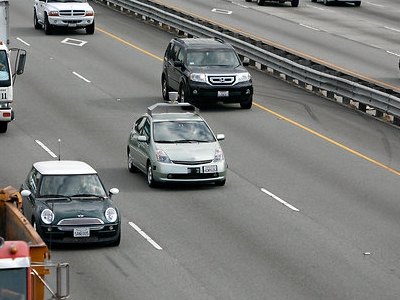
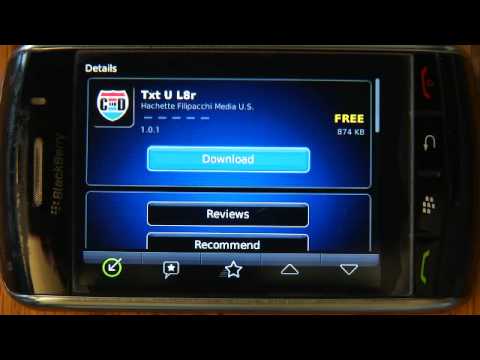
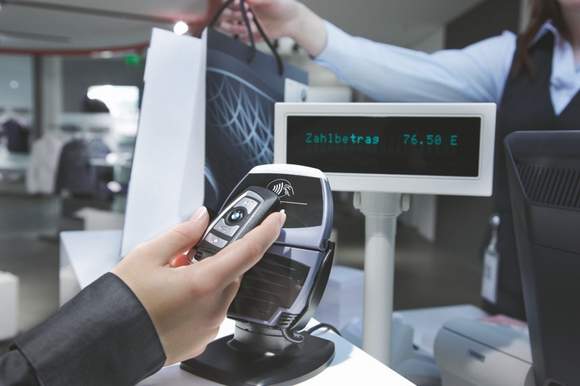

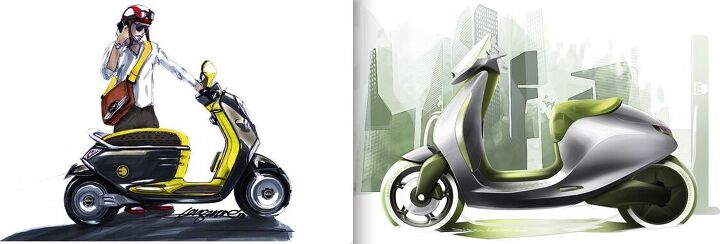




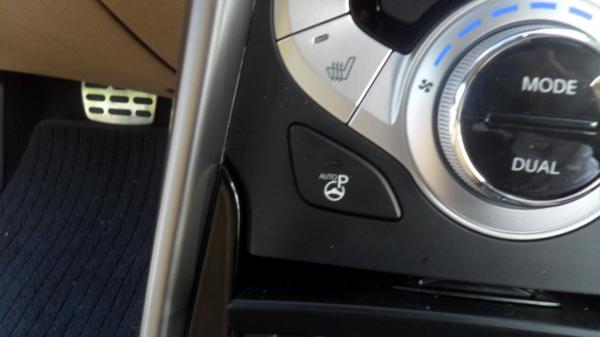


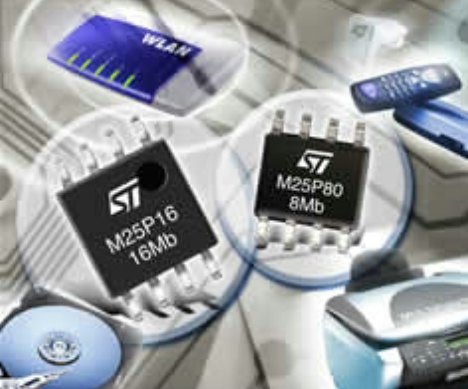
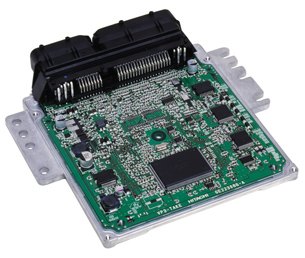
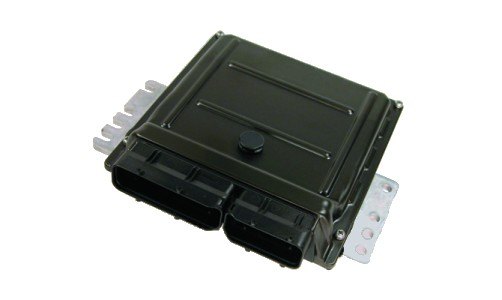
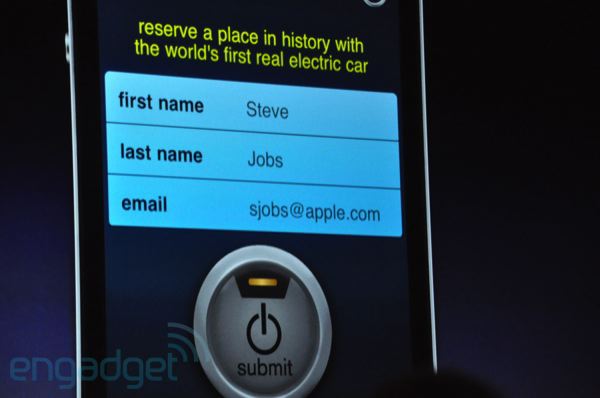


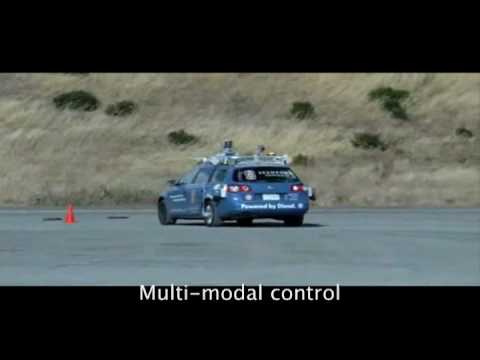
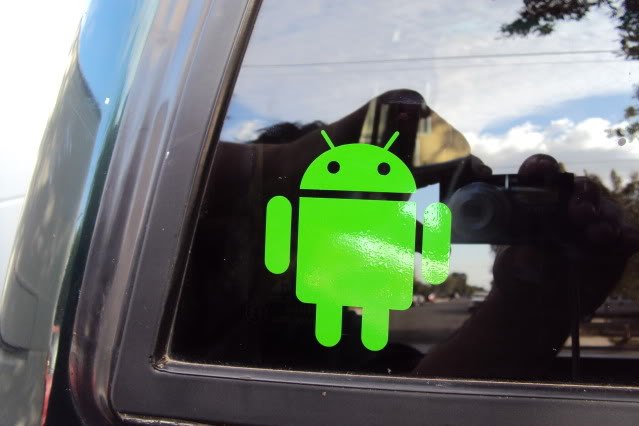


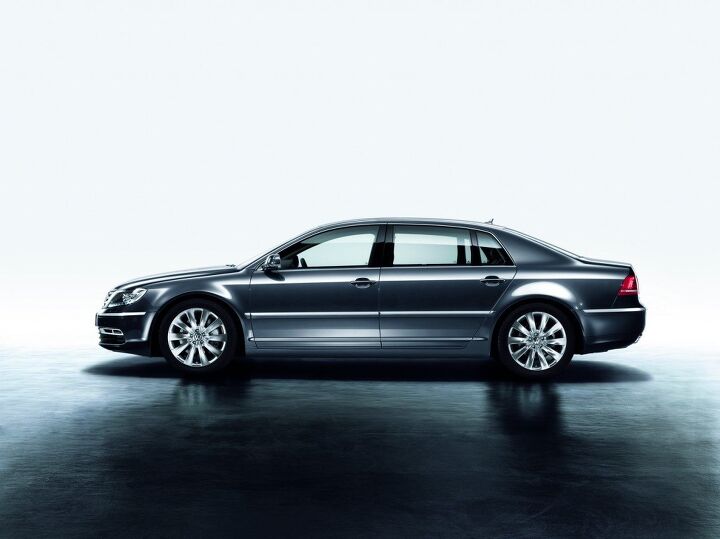
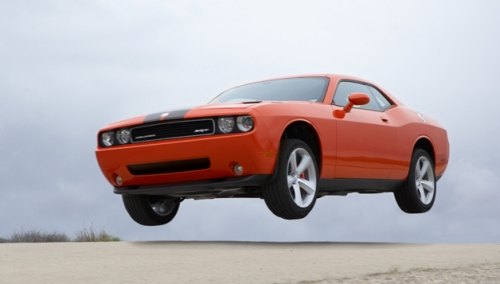

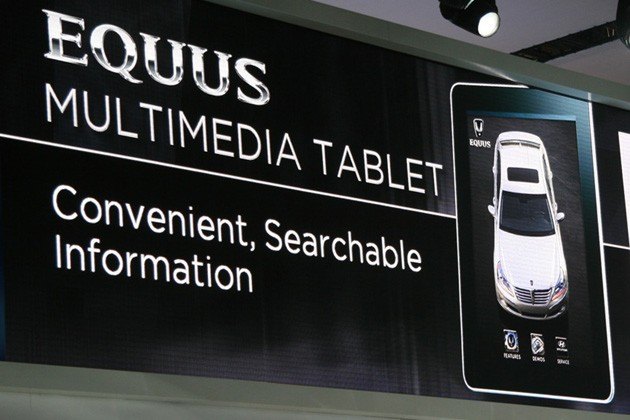
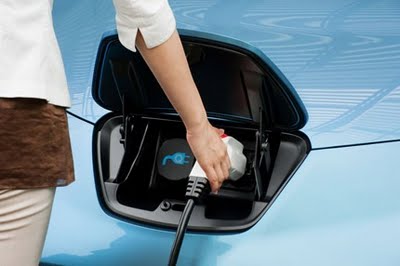
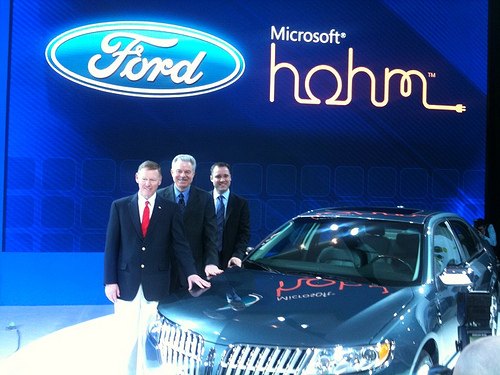


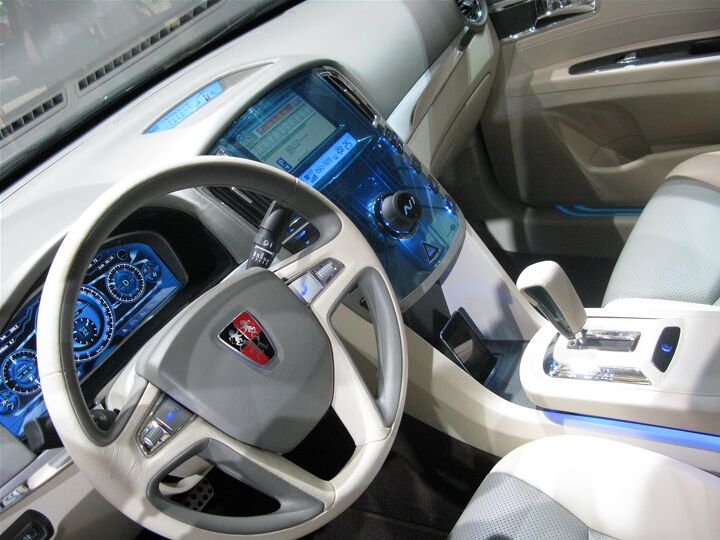
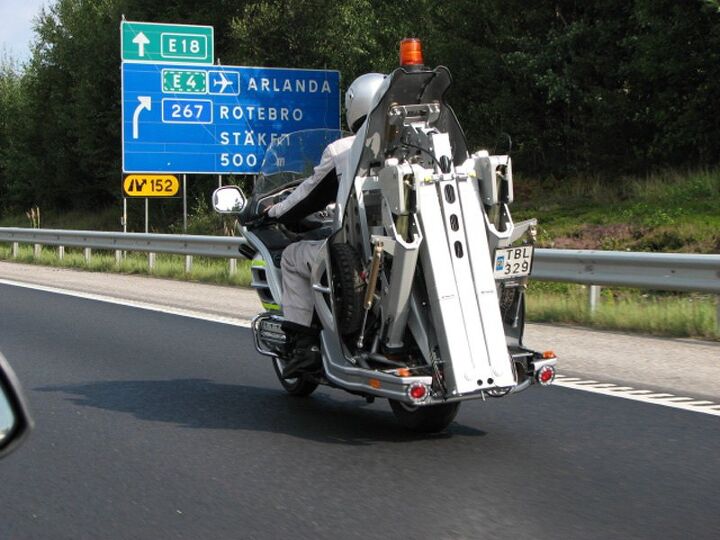



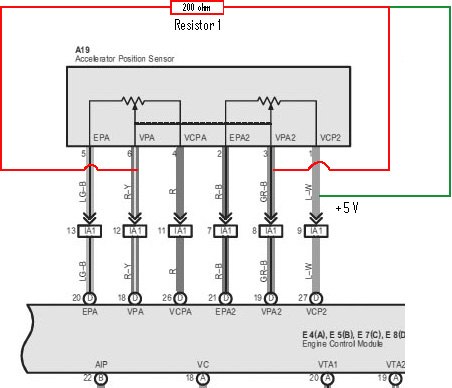

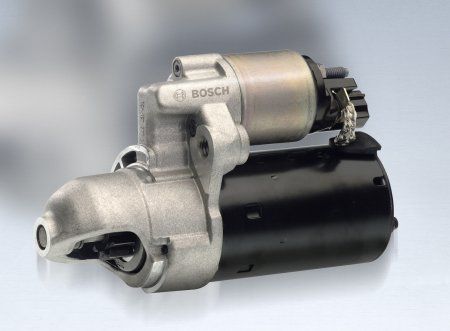
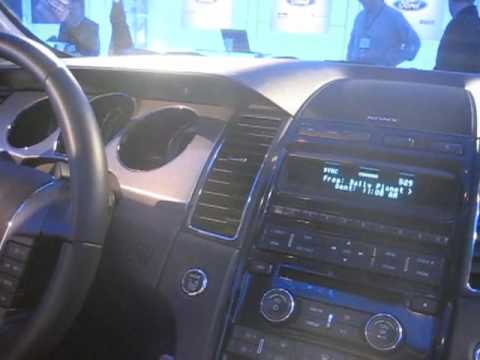



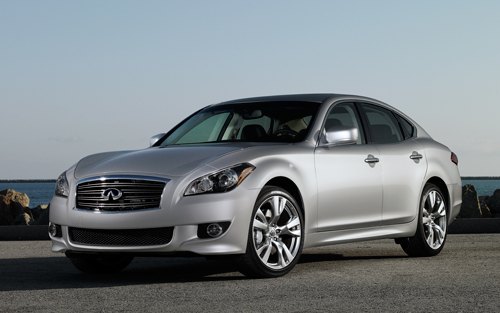

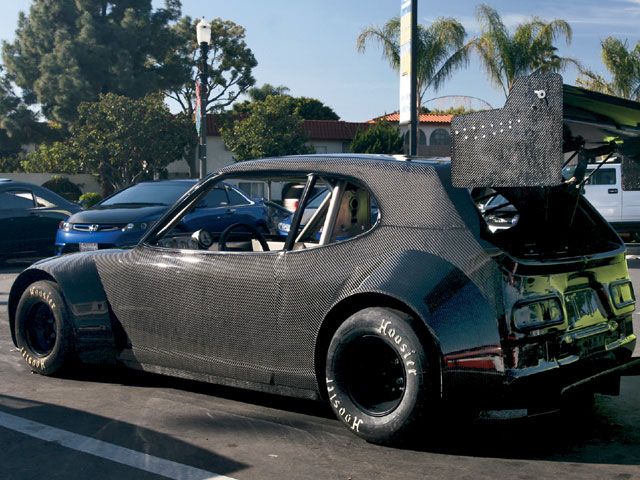
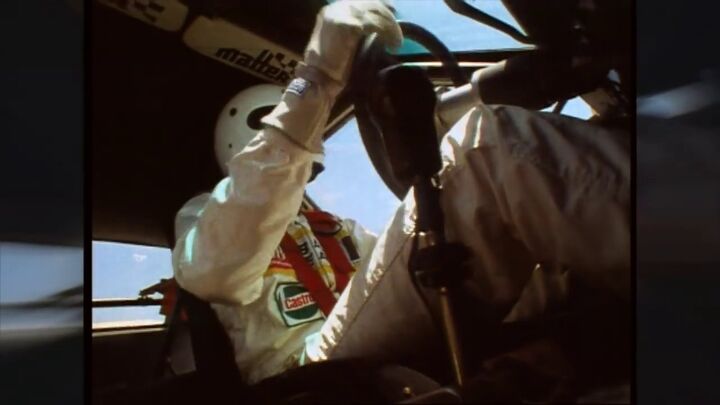













Recent Comments